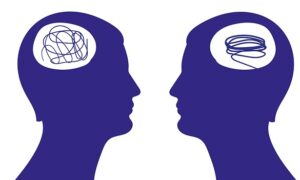Amy Pfeffer recently discussed proactive methods for treating the effects of childhood trauma.
Childhood trauma affects two-thirds of children by 16, according to SAMHSA’s National Child Traumatic Stress Initiative (NCSTI). Amy Pfeffer of Orchard Park, New York, is a mental health counselor specializing in treating childhood trauma and other behavioral and mental health concerns.
“Childhood trauma is not a short-term issue,” Pfeffer said. “The effects of traumatic childhood events can last a lifetime.”
Pfeffer recently discussed several proactive methods for treating childhood trauma.
What Constitutes Childhood Trauma?
First, it’s essential to understand what constitutes childhood trauma to treat it adequately. Pfeffer stated that countless experiences could be described as trauma, including sexual or physical abuse, car accidents, medical trauma, and natural disasters.
Other, less obvious circumstances may constitute trauma, such as living in a high-violence neighborhood or watching a loved one suffer for a period of time. However, Amy Pfeffer, a practicing mental health expert in Buffalo, explained that not all upsetting events are traumatic. An example of this is divorce. It is an event that affects the child and may be challenging but does not always constitute trauma.
Methods of Overcoming Childhood Trauma
Experts like Amy Pfeffer turn to multiple evidence-based methods for helping adults overcome childhood trauma. The following are a few of the most common forms of treatment.
Cognitive Behavioral Therapy (CBT)
Cognitive behavioral therapy can be trauma-focused. This form of therapy helps patients change their current thought or behavioral patterns into more positive responses. CBT utilizes awareness and intentional cognitive responses to help adults overcome childhood trauma. This form of therapy is most effective with a minimum of eight therapy sessions but may require dozens.
Cognitive Processing Trauma Therapy (CPT)
This type of therapy specifically treats adults with post-traumatic stress disorder. The focus is to help the individual rationalize and recontextualize the traumatic events. It is especially beneficial for sexual assault and abuse victims.
Prolonged Exposure Therapy
Prolonged exposure therapy is also known as flooding. This type of therapy is intense but successfully reduces panic attacks, anxiety, depression, and PTSD for adults who experienced trauma as children.
Prolonged exposure involves exposing the individual to traumatic memories so they can understand and rationalize them, then leave them in the past.
Healing childhood trauma is not easy, but it is entirely possible. Effective, professional therapy can help adults overcome childhood trauma, so they can lead productive, happy, and healthy lives.
Licensed Clinical Social Worker Amy Pfeffer
Amy Pfeffer is a licensed clinical social worker (LCSW) and mental health services provider specializing in childhood trauma. She aims to help individuals of all backgrounds and childhood traumas to live successful lives with healthy families of their own.































